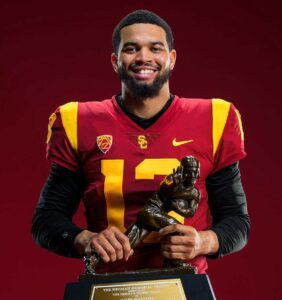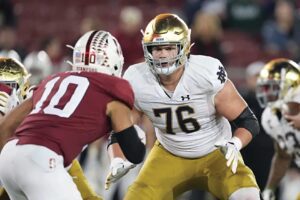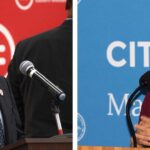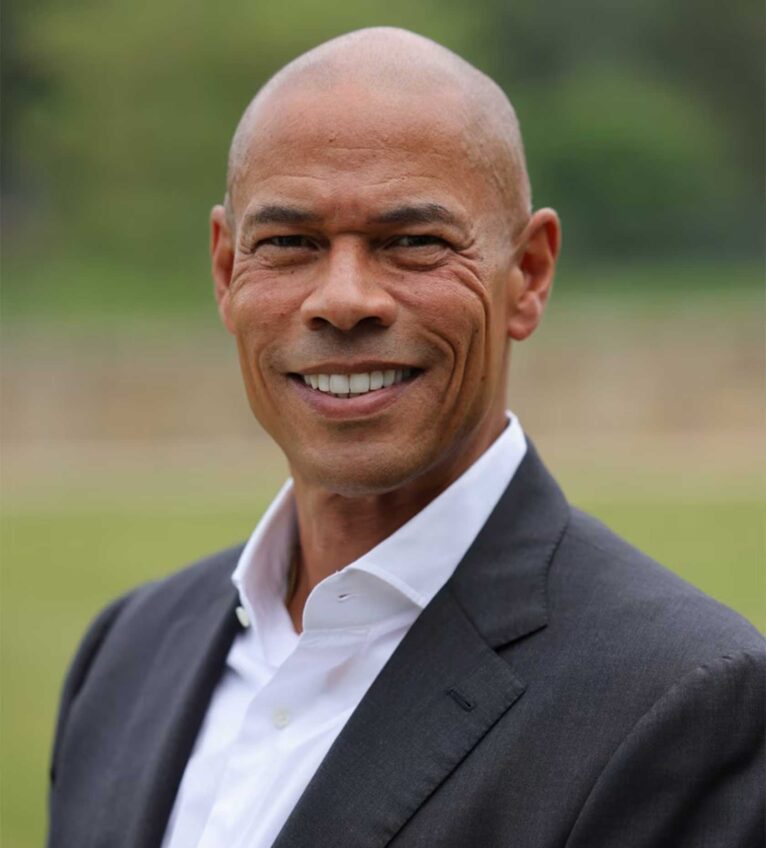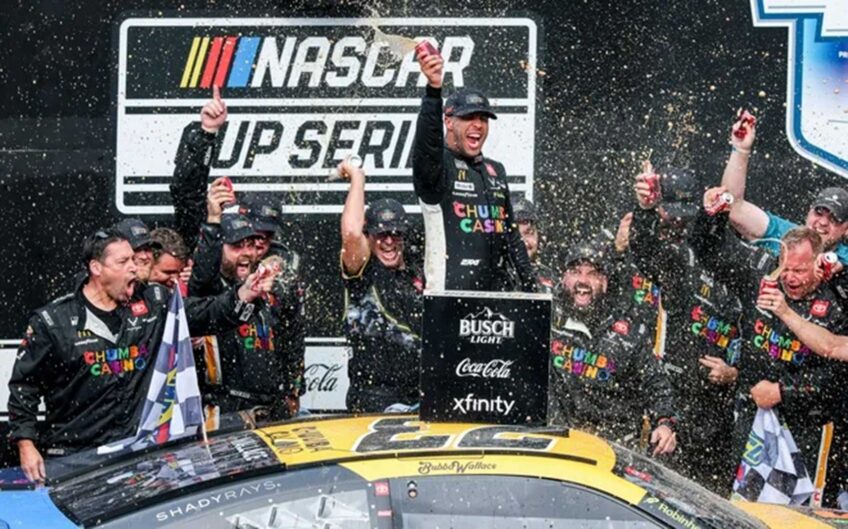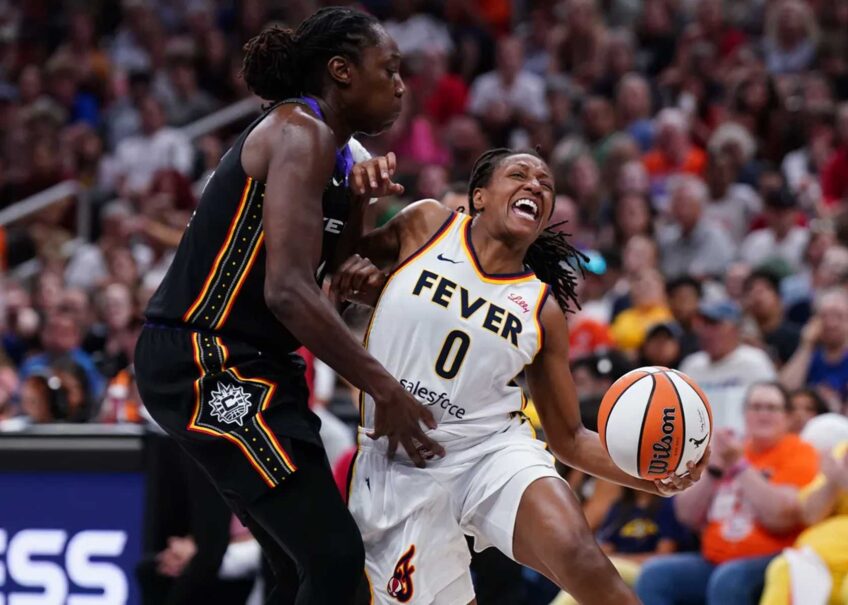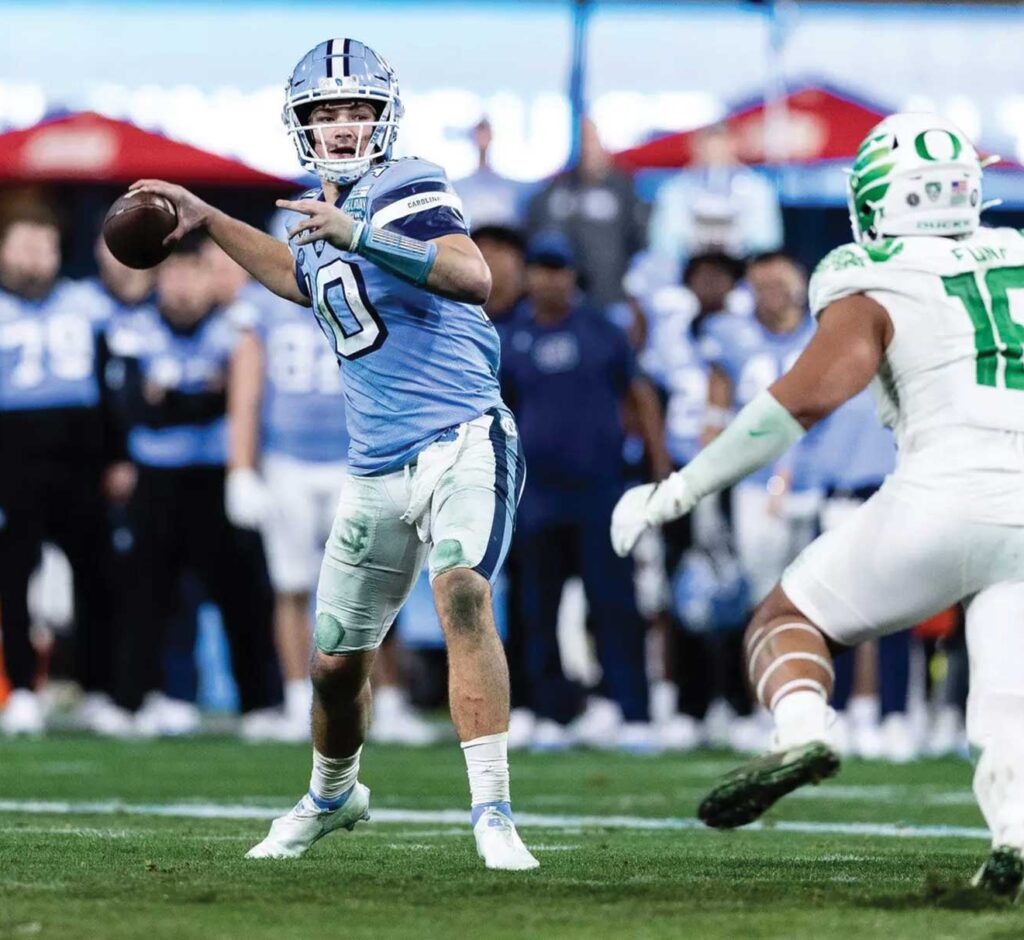
Banner Sports sponsored by the Patriots Foundation
Last week’s draft marked a historic moment in the National Football League. Caleb Williams and Jayden Daniels — both winners of the coveted Heisman Trophy — became the first Black quarterbacks to be selected as the top two picks in pro football history.
They follow earlier men of color as trailblazers, with two Hawaiians — quarterbacks Jameis Winston and Marcus Mariota — going first and second in the 2015 draft.
Jim Plunkett and Tom Flores, both with Hispanic heritage, were also trailblazers. Plunkett, drafted number one by the New England Patriots in 1971, was the first man of color to quarterback a team to a Superbowl title in 1980 and 1983 for the Oakland Raiders.
For his part, Flores was the first man of color to coach teams to Super Bowl titles for those same Plunkett-led Raiders. In truth, Plunkett and Flores — also a quarterback in his playing days in pro football — set the stage for quarterback Doug Williams of the Washington Redskins and Indianapolis Colts coach Tony Dungy to become recognized as the first African Americans to win Superbowl titles.
Former Black quarterbacks must wonder how history has changed as they watched Caleb Williams of the University of Southern California and Jayden Daniels of Louisiana State University receive their flowers before a nationally televised audience.
It must be tough for these former Black quarterbacks to see the praise heaped on Williams and Daniels — along with the immediate wealth they will receive — and not feel a sense of loss for what could have been their glory. Still, this night belonged to young people like Williams and Daniels, along with 30 others who will now attempt to live out their lifelong dreams of being players in the National Football League.
It was a wild night for the NFL, with six quarterbacks taken in the top 12 picks of the first round. Williams was the first player to be picked by the Bears with the number one overall selection since 1947.
Williams seemed pensive as he sat, waiting for the moment to arrive. But that changed when the NFL Commissioner called his name and made it official: “The Chicago Bears select Caleb Williams, quarterback from Southern California.” One would have thought someone had lifted a 10-ton weight off Williams’s shoulders as he jubilantly pranced to the podium. After placing a bear hug on the NFL commissioner, he took a moment to let the magnitude of history set in.
“This is one of the highlight moments of my life,” Williams would state later as he stood clad in a beautiful dark blue suit with three crosses stenciled on the left breast.
Jayden Daniels was next to the podium, being selected by the Washington Commanders. I could not help but notice Doug Williams, the Most Valuable Player of the old Washington Redskins’ second Superbowl Championship in 1988, with an ear-to-ear smile on his face as he viewed the proceedings from the Commanders’ draft war room.
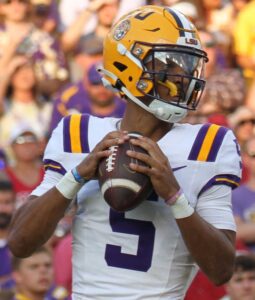
Second pick in the NFL Draft, LSU’s Jayden Daniels is also a Heisman Trophy winner. PHOTO: ANTHONY BAKER
The New England Patriots took quarterback Drake Maye from North Carolina with the third pick. Maye will compete with veteran Jacoby Brissett for the starting quarterback job, although many feel he will begin his NFL career as an understudy to Brissett.
With the fourth pick, the Arizona Cardinals selected wide receiver Marvin Harrison Jr. of Ohio State, the son of Hall of Fame wide receiver Marvin Harrison Sr., who played for the Indianapolis Colts. Scouts believe Harrison Jr. to be an immediate starter and an impact player.
The Los Angeles Chargers took Joe Alt, an offensive lineman from Notre Dame with the fifth pick. Alt, the first offensive lineman picked, is expected to start for the Chargers.
The New York Giants went for wide receiver Malik Nabers of LSU with the sixth pick, instead of going for a quarterback. Their current signal-caller, Daniel Jones, is injury-prone and underachieving when healthy. With the loss of star running back Saquon Barkley to the division rival Philadelphia Eagles, even more heat will be brought on Jones to perform well if the Giants expect to be competitive in a tough division that features the Dallas Cowboys, Philadelphia Eagles and Washington Commanders.
Rumor had it that the Giants would sign quarterback J.J. McCarthy from the NCAA champions Michigan Wolverines with the sixth pick, but they passed.
JC Latham of Alabama became the second offensive lineman to be selected in the draft’s opening round, going to the Tennessee Titans at pick number seven. The Titans expect to move the 6-foot-6, 342-pound lineman to left tackle so he can play immediately.
There was a surprise at the number eight slot, with the Atlanta Falcons picking quarterback Michael Penix Jr. from the Washington Huskies. The Falcons recently signed veteran quarterback Kirk Cousins to a mega-contract of $180 million. It has already been reported that Cousins’ agent, Mike McCartney, spoke about how Cousins was frustrated and confused by the team’s decision to draft Penix, who is in line to be his backup.
Rome Odunze, Penix’s star receiver at Washington, will join the Bears at number nine. Another impact player, he will join an already deep wide receiver corps, which should make Caleb Williams very happy.
The Minnesota Vikings drafted J.J. McCarthy in the tenth spot to replace Cousins in Minneapolis. Many believe this is an excellent place for the former Michigan star quarterback.
Another quarterback, Bo Nix from Oregon, was selected at the number 12 spot by the Denver Broncos, bringing the total number of signal-callers chosen in the first round of this draft to six. This draft matches the legendary class of 1983, which featured Hall of Fame quarterbacks John Elway and Dan Marino.
Laiatu Latu of UCLA was the Indianapolis Colts’ first defensive player, picked at number 15. The edge rusher is expected to see significant playing time this coming season.
Toledo corner Quinyon Mitchell was the first defensive back taken, picked by the Philadelphia Eagles at number 22 of the opening round. He will help the troubled Eagles’ defensive backfield if he stays healthy.
Twenty-three offensive players were picked in the first round of this draft. The seven receivers tied the 2004 record, and eight offensive linemen tied the 2008 mark.
All in all, it was a wild night in Detroit.
One other football note of interest: The NCAA will give back Reggie Bush’s Heisman Trophy and reinstate his name to the Heisman rolls. Bush had his Heisman taken away in 2005 due to receiving inappropriate cash payments during his playing days at Southern California.
Expect this decision to open doors for other athletes stripped of honors for receiving cash payments during their college careers, with a special note to the “Michigan Fab 5.”
Stay tuned.

